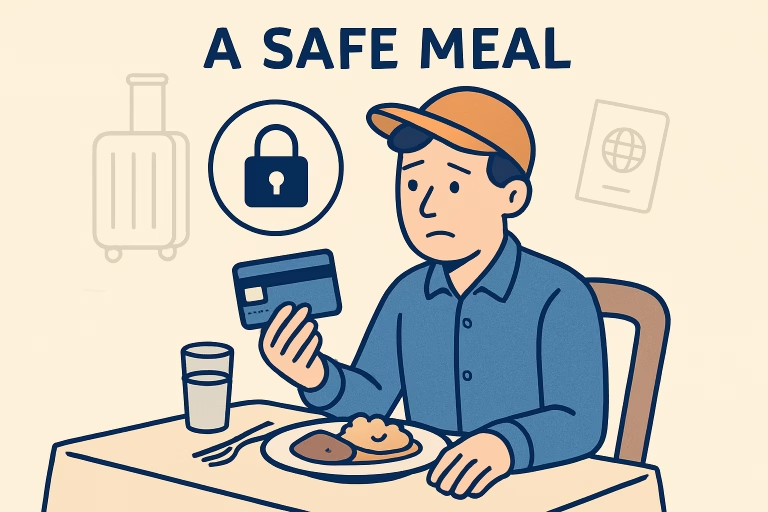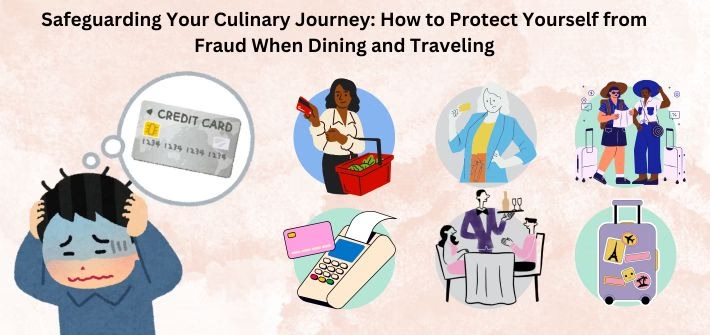Embarking on a culinary adventure while traveling is an enriching experience that opens you up to vibrant flavors, unique dining encounters, and unforgettable memories. However, the excitement of sampling new cuisines can come with hidden risks. Scammers and fraudsters often target travelers, exploiting their curiosity and unfamiliarity with local customs. Being aware of the potential dangers is crucial to ensuring your journey remains joyful and safe.
Awareness is your best weapon against fraud while navigating unfamiliar culinary landscapes. Real stories and cautionary tales, like the one surrounding Claudette Rickett, serve as stark reminders to remain vigilant about whom you trust—whether it’s the individuals you dine with, the establishments you visit, or the methods you use to pay and book your adventures.
Common Restaurant Scams
Tourist destinations around the world often harbor restaurants that may target unsuspecting diners. Common scams include inflating prices, adding undisclosed service charges, and even substituting menu items without notification. In some instances, foreign travelers have found themselves pressured to pay for extras they never ordered. Always review the menu thoroughly, check prices, and confirm your order before paying the bill. If any discrepancies arise, respectfully clarify with the staff and request a printed receipt.
Protecting Personal Information
Your personal information is increasingly valuable to scammers. Only share information such as passport numbers, credit card details, or personal identification with trusted parties and legitimate businesses. Be particularly cautious when approached for details you did not initiate sharing. Verify email addresses, website URLs, and phone contacts before disclosing anything sensitive. As with travel booking, stick to established platforms with clear security practices. Identity theft or phishing attempts can happen anywhere, even within upscale hotels or restaurants.
Safe Payment Practices
Credit cards—especially those offering travel protections—are often your best defense against payment fraud. Insist on completing all transactions in your presence; never allow staff to “take your card away” for processing, as portable skimming machines are becoming more common. Immediately review your payment notification, whether it’s a receipt or a mobile alert, for accuracy. Make a habit of monitoring your financial accounts for unusual activity, as prompt action can prevent significant losses.
Avoiding Public Wi-Fi Risks
Cafés, hotels, and restaurants frequently provide free Wi-Fi, but these networks are rarely secure. Hackers can easily intercept unencrypted data, including passwords and credit card numbers. Avoid logging in to sensitive services—such as online banking—while on public Wi-Fi. If you need internet access to manage reservations or payments, use a VPN (Virtual Private Network) to scramble your data and keep your transactions private. Many reputable hotels offer private or password-protected Wi-Fi for guests, which is a safer alternative whenever possible.

Staying Vigilant in Tourist Spots
Crowded markets, popular museums, and major tourist attractions are hotspots for pickpockets and scam artists. Use anti-theft bags, keep belongings close, and be cautious if approached by strangers who seem unusually interested in your plans or possessions. Many scams involve a team—one person distracts you while another targets your valuables. Additionally, refrain from leaving documents or electronics unattended, even briefly. Report any suspicious behavior to local authorities or hotel staff immediately.
Verifying Travel Bookings
Whether booking a dinner, lodging, or transportation, stick to reputable companies with transparent policies and verified reviews. Be skeptical of deals that appear “too good to be true” or requests for payment via atypical methods such as wire transfers. Double-check all booking confirmations and read online reviews from multiple trusted sources before committing. This level of due diligence can save you time, money, and frustration down the road.
Using Secure Transportation
Transport-based scams are also prevalent, with unlicensed taxis, fake ride-share drivers, and other unreliable options preying on travelers. Only use regulated taxi services, well-known ride-share platforms, or transportation options recommended by your hotel. Establish a clear price or ensure the meter is running before committing to a ride. Be wary of drivers who deviate from agreed routes or suggest unplanned detours, and always keep your personal belongings in sight when using public transportation.
Conclusion
Traveling the world and exploring its diverse cuisines can be the adventure of a lifetime, but only if you take proper steps to safeguard yourself from potential fraud. Use stories and other published resources to remind yourself of the importance of vigilance. By making informed choices and staying alert, you can confidently enjoy your culinary journey—safely and securely, wherever your adventures take you.

